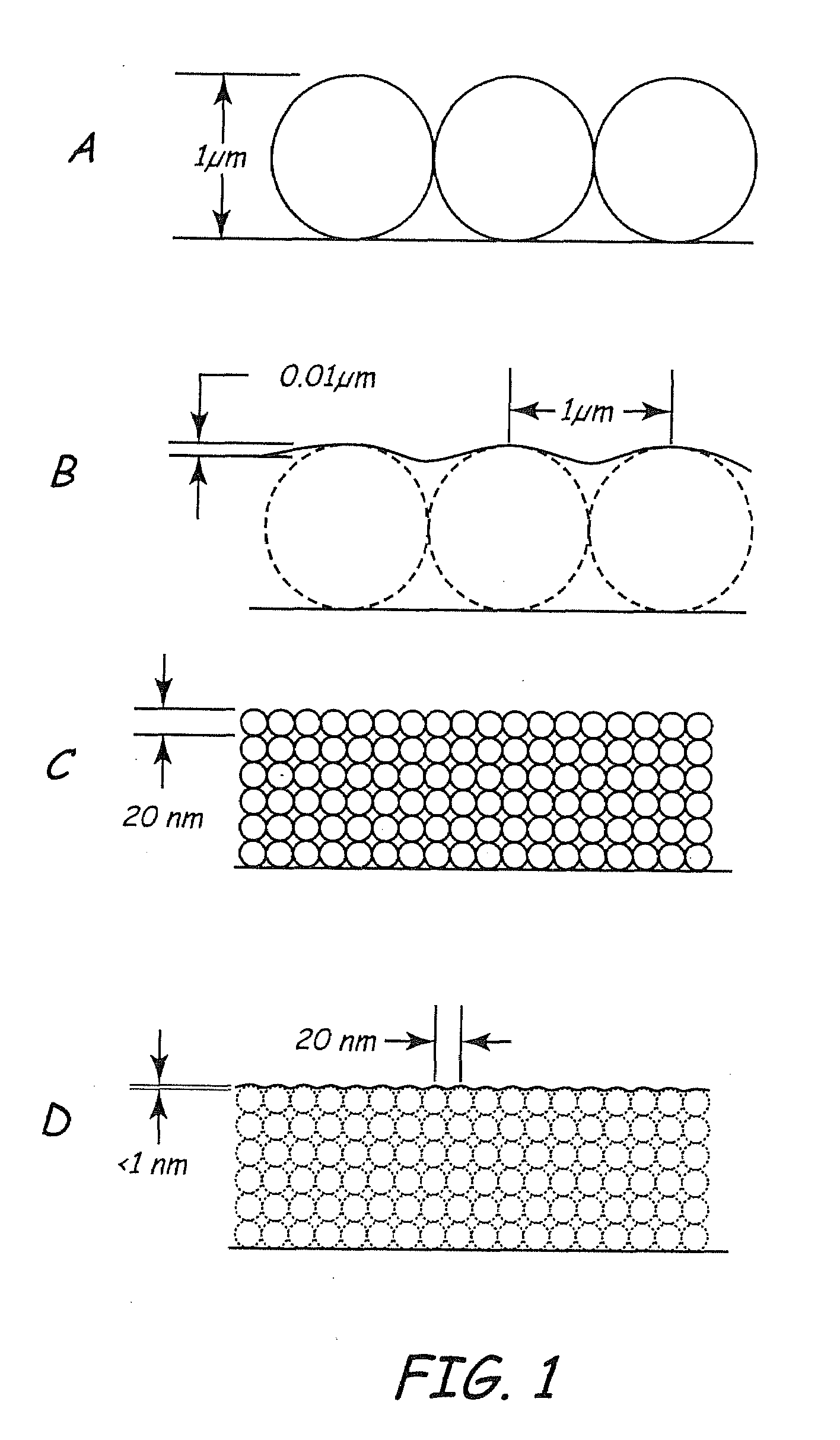Coating formation by reactive deposition
a reactive deposition and coating technology, applied in the direction of liquid/solution decomposition chemical coating, coating, optical waveguide light guide, etc., can solve the problems of inability to easily adapt flame hydrolysis deposition to obtain more uniform coating, process is extremely slow, and individual components integrated in the device are shrinking in size. , to achieve the effect of high ra
- Summary
- Abstract
- Description
- Claims
- Application Information
AI Technical Summary
Benefits of technology
Problems solved by technology
Method used
Image
Examples
examples
[0242]This example describes the successful coating of a silicon substrate with a silicon oxide glass using light reactive deposition.
[0243]Particle coating was been performed using light reactive deposition in which wafer coating was been performed within the reaction chamber by sweeping the substrate through a product particle stream. This example focuses on this embodiment, although successful coating of a wafer within the reaction chamber has also been performed in preliminary experiments with a fixed substrate.
[0244]The apparatus used to coat a substrate / wafer moved through the reaction stream is shown in FIGS. 31-33. Referring to FIG. 31, process chamber 850 includes a light tube 852 connected to a CO2 laser and a light tube 854 connected to a beam dump. An inlet tube 856 connects with a precursor delivery system that delivers vapor reactants and carrier gases. Inlet tube 856 leads to process nozzle 858. A particle transport tube 860 connects to process chamber 850 along the f...
PUM
| Property | Measurement | Unit |
|---|---|---|
| pressure | aaaaa | aaaaa |
| pressure | aaaaa | aaaaa |
| diameter | aaaaa | aaaaa |
Abstract
Description
Claims
Application Information
 Login to View More
Login to View More - R&D
- Intellectual Property
- Life Sciences
- Materials
- Tech Scout
- Unparalleled Data Quality
- Higher Quality Content
- 60% Fewer Hallucinations
Browse by: Latest US Patents, China's latest patents, Technical Efficacy Thesaurus, Application Domain, Technology Topic, Popular Technical Reports.
© 2025 PatSnap. All rights reserved.Legal|Privacy policy|Modern Slavery Act Transparency Statement|Sitemap|About US| Contact US: help@patsnap.com



